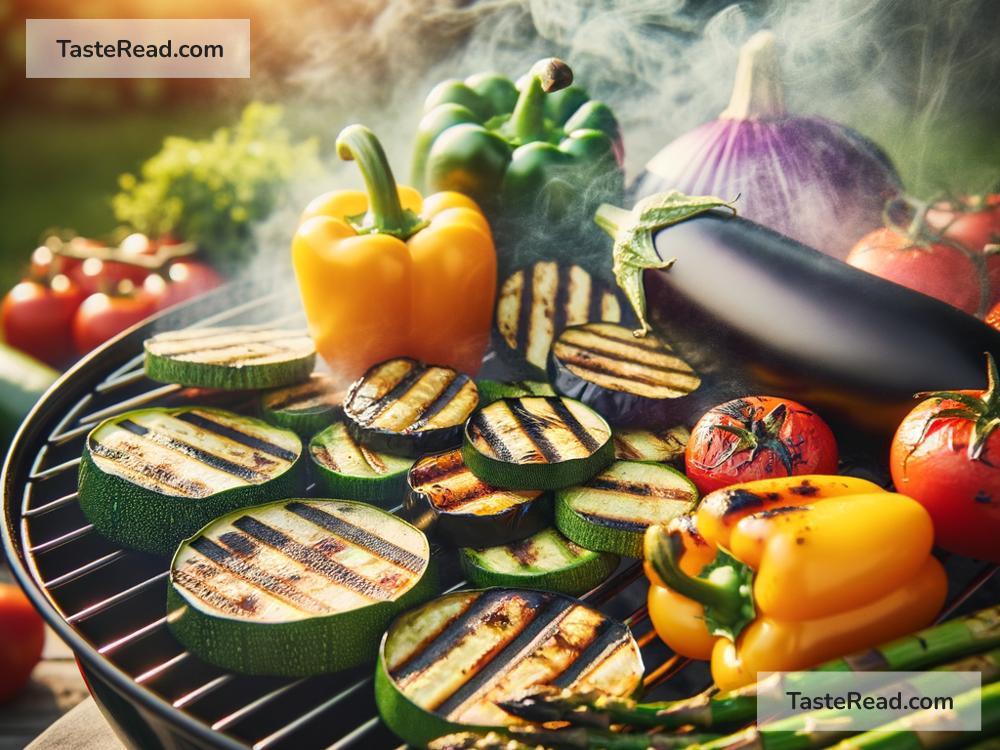How Grilling Vegetables Enhances Smoky Flavors
Grilling vegetables is one of the best ways to transform common ingredients into mouthwatering dishes. Whether you’re a seasoned chef, a backyard BBQ enthusiast, or simply someone who loves good food, grilling vegetables offers a delicious way to enhance their natural flavors. One of the standout qualities of grilled veggies is the smoky flavor they develop. Let’s explore how grilling works its magic and why smoky vegetables are worth adding to your menu.
What Makes Grilling Special?
Grilling is unique because it uses direct, high heat from an open flame, hot coals, or even a gas-powered burner. This method creates a combination of searing, caramelization, and smokiness that you won’t find with boiling, steaming, or even pan-frying.
When vegetables are placed on a grill, they undergo a series of transformations. Their natural sugars start to break down and caramelize. At the same time, the smoky flavor develops as the vegetables interact with the grill itself—whether it’s the charred grates or the wood or charcoal source below them.
How Does Smoky Flavor Develop?
The smoky flavor is a result of direct contact with heat and smoke. The grill creates that signature touch in a few key ways:
-
Char Marks: The high heat creates darkened stripes or spots where the vegetables touch the grill grates. These char marks not only add visual appeal but also have a slightly bitter, smoky taste that complements the vegetables’ sweetness.
-
Caramelization: Grilling brings out the natural sugars in vegetables like peppers, onions, carrots, sweet potatoes, and zucchini. These sugars caramelize at high heat, creating golden-brown patches that intensify the vegetables’ sweetness. This sweetness balances the smoky notes, resulting in a harmonious flavor.
-
Smoke Infusion: If you’re grilling over charcoal or wood, the smoke produced while burning will naturally infuse into the vegetables. Wood chips, in particular, can add extra flavor—think hickory, mesquite, or applewood. As the smoke rises and surrounds the veggies, it imparts a unique aroma and taste.
Best Vegetables for Grilling
Not all vegetables are created equal when it comes to grilling. While almost any veggie can benefit from the grill’s smokiness, some stand out more than others. Here are a few to try:
-
Bell Peppers: Their skin chars beautifully, while their insides become tender and sweet. Grilled bell peppers often take on an almost fruity taste with smoky undertones.
-
Onions: Whether you’re grilling them as whole slices or smaller wedges, onions caramelize nicely, giving them a rich sweetness. They also absorb smoke well, adding depth to their flavor.
-
Zucchini and Eggplant: These soft vegetables cook in no time and develop a creamy texture. Their surfaces char easily and soak in the smoky aroma.
-
Corn: Grilled corn on the cob is a summertime favorite. The kernels caramelize slightly, while the smoky flavor creates a perfect pairing with butter and seasonings.
-
Mushrooms: Mushrooms are like sponges—they soak up smoke and seasonings, giving them an earthy, umami flavor that’s irresistible.
-
Asparagus: Thin and quick to cook, asparagus benefits tremendously from grilling. Its slightly grassy flavor is heightened by the smokiness.
Tips for Grilling Vegetables
Here are some simple tips to ensure you get perfectly grilled, smoky vegetables every time:
-
Prep with Oil and Seasoning: Lightly coat vegetables with olive oil before grilling. This prevents sticking and helps them caramelize better. Add simple seasonings like salt, pepper, garlic powder, or herbs to enhance flavor.
-
Use High Heat: Turn up the grill to medium-high or high heat. Vegetables cook well when exposed to steady heat that can sear the outside.
-
Don’t Overcrowd the Grill: Spread vegetables out so there’s space for heat and smoke to circulate. This ensures even cooking and maximum smoky infusion.
-
Turn Regularly: Flip vegetables occasionally with tongs to prevent burning and ensure a good char on all sides.
-
Experiment with Wood Chips: If you’re using charcoal or a smoker, add flavored wood chips to amplify the smokiness. Try experimenting to see which flavor pairs best with your veggies.
-
Keep an Eye on Cook Times: Vegetables cook quickly on the grill—usually in 5–15 minutes depending on their size and thickness. Remove them as soon as they’re tender and slightly charred.
Why Smoky Vegetables Are So Delicious
Smoky vegetables aren’t just tasty—they’re versatile! The smokiness adds complexity to the natural flavors of the vegetables, elevating simple ingredients into something gourmet. Whether you’re enjoying them as a side dish, mixing them into a salad, or layering them onto a sandwich, smoky veggies bring that extra depth of flavor that brightens the entire meal.
Another bonus? Grilled vegetables are healthy! They’re packed with vitamins, minerals, and antioxidants, and grilling requires minimal oil. You can feel good about eating them and serving them to family and friends.
Final Thoughts
Grilling vegetables is an easy way to enhance their flavors and bring out smokiness that’s both delicious and memorable. Whether you love bell peppers, mushrooms, or zucchini, tossing them on the grill transforms humble veggies into a show-stopping dish. With just a bit of heat, smoke, and seasoning, you’ll create flavors that wow everyone at the table. Next time you fire up the grill, don’t forget to toss on some vegetables—you’ll be surprised at what a difference it makes!


